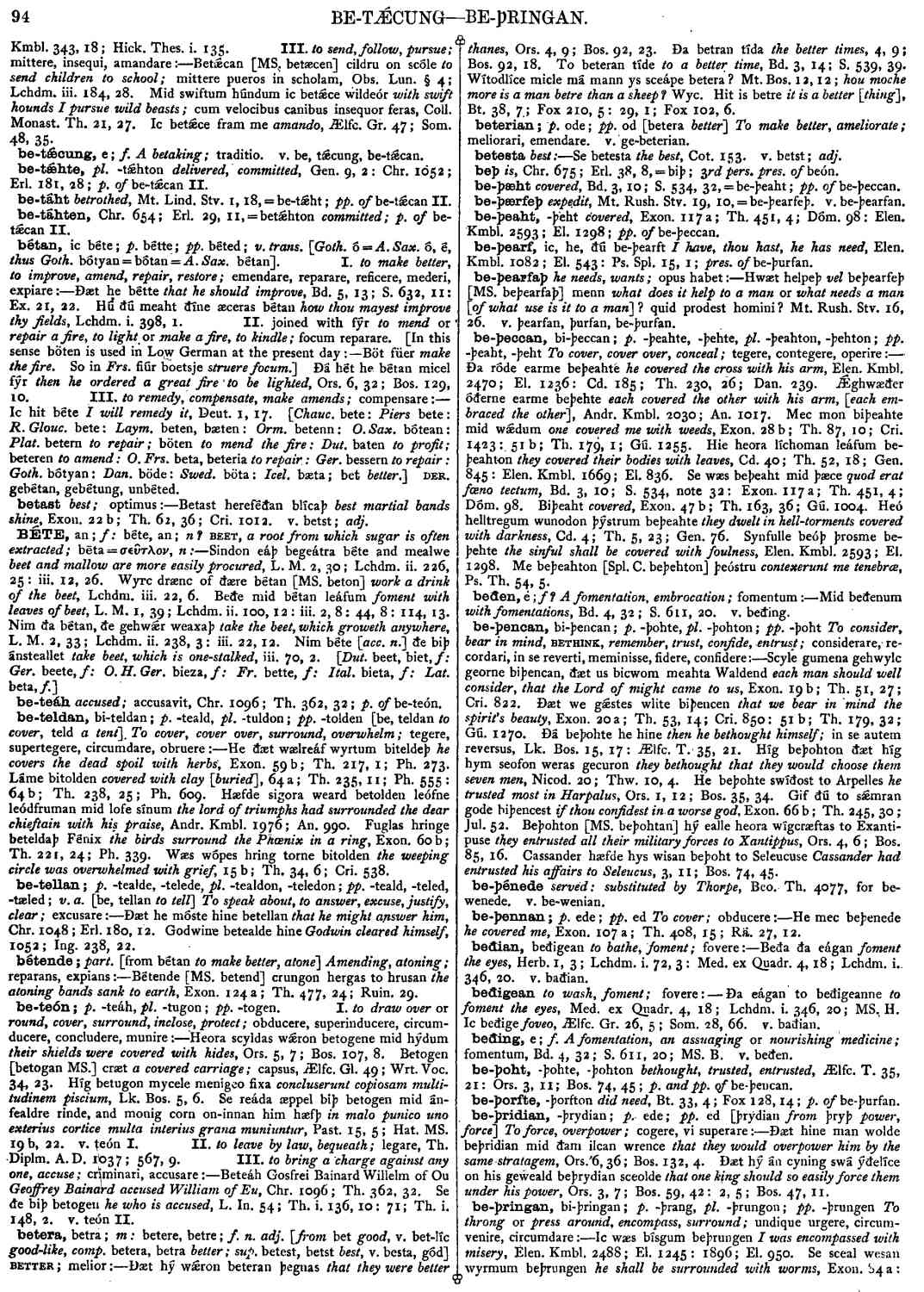be-þencan
- verb [ weak ]
-
Scyle gumena gehwylc georne biþencan, ðæt us bicwom meahta Waldend
each man should well consider, that the Lord of might came to us,
- Exon. 19 b; Th. 51, 27; Cri. 822.
-
Ðæt we gǽstes wlite biþencen
that we bear in mind the spirit's beauty,
- Exon. 20 a; Th. 53, 14; Cri. 850 : 51 b; Th. 179, 32; Gú.
1270.
-
Ðá beþohte he hine
then he bethought himself;
in se autem reversus,- Lk. Bos. 15, 17 : Ælfc. T. 35,
21.
-
Híg beþohton ðæt híg hym seofon weras gecuron
they bethought that they would choose them seven men,
- Nicod. 20; Thw. 10, 4.
-
He beþohte swíðost to Arpelles
he trusted most in Harpalus,
- Ors. 1, 12; Bos. 35, 34.
-
Gif ðú to sǽmran gode biþencest
if thou confidest in a worse god,
- Exon. 66 b; Th. 245, 30; Jul. 52.
-
Beþohton [MS. beþohtan] hý ealle heora wígcræftas to Exantipuse
they entrusted all their military forces to Xantippus,
- Ors. 4, 6; Bos. 85, 16.
-
Cassander hæfde hys wisan beþoht to Seleucuse
Cassander had entrusted his affairs to Seleucus,
- 3, 11; Bos. 74. 45.
Bosworth, Joseph. “be-þencan.” In An Anglo-Saxon Dictionary Online, edited by Thomas Northcote Toller, Christ Sean, and Ondřej Tichy. Prague: Faculty of Arts, Charles University, 2014. https://bosworthtoller.com/4053.
Checked: 0